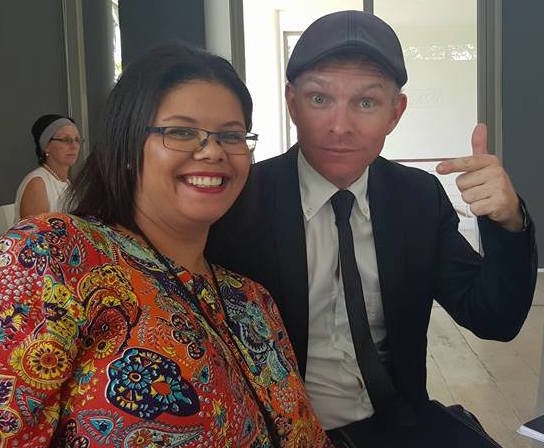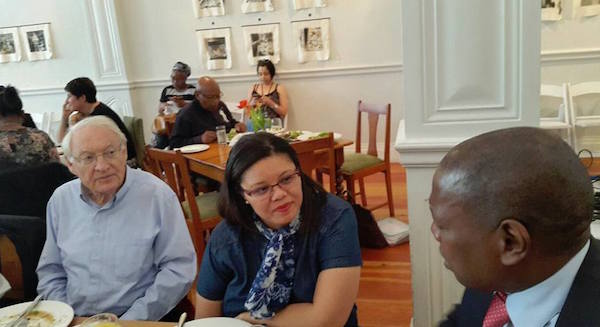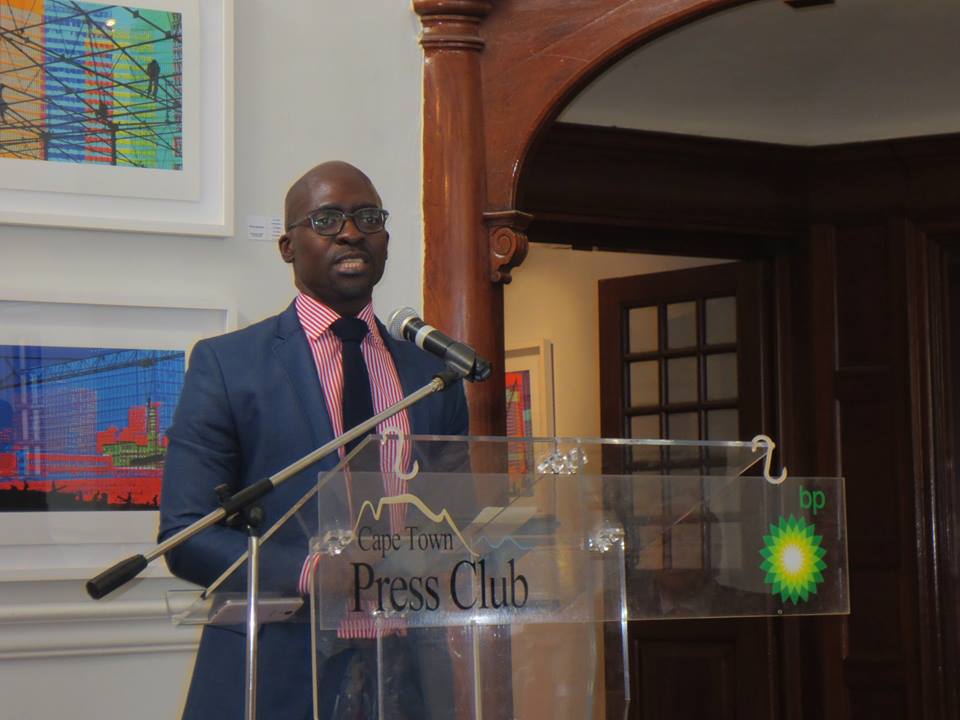[OPINION] Accuracy: Independent Media will not publish inaccurate, misleading or distorted information.
~ The Independent Media Press Code IOL
The Cape Town Press Club Committee noted a handful of false, inaccurate and misleading remarks made on social media, some of which were regurgitated verbatim by the Cape Times nonetheless, in two articles run on Friday and Monday.
The Cape Town Press Club is a voluntary organisation. We do not represent Cape Town’s media. Although we take up other issues of concern to the media, such as the defence of journalists or laws that threaten our freedom of speech, most of our business is simply to provide a newsworthy platform for speakers to air their views and answer questions from the media and concerned citizens. ~ A reply to the Cape Times, Cape Town Press Club, Politicsweb 14/8/2018
Donwald Pressly is one of the country’s more experienced political reporters. He authored Owning the Future: Lindiwe Mazibuko and the Changing Face of the DA and the Barry Streek Memorial Bursary, which he originated as a committee member of the Cape Town Press Club, has provided the bursaries which enabled eight aspiring black journalists to do post-graduate study in journalism at Rhodes University.
Then, on the 10 August and the 13 August, he became the latest victim of the media power and influence which Sekunjalo’s Iqbal Survé acquired thanks to a questionable and initially clandestine billion rand loan, from which the Public Investment Corporation is now trying to extricate itself while it finds itself, accordingly, under justifiable investigation.
The two articles splashed across the front pages of the Cape Times were headlined Press Club all white, one woman and First black Press Club chair quits. Both articles are ostensibly about the Cape Town Press Club but photographs of Donwald Pressly are strategically placed at the beginning of each article on the IOL website.
The clear purpose of both the above-mentioned articles was to portray the Cape Town Press Club as a racist organisation and its members, like Pressly, as having an anti-transformation intent and agenda.
The article, headlined ‘Press Club all white, one woman’, was a typical case in point.
The headline clearly says “one woman” yet the third paragraph states that there are two women on the committee, Sue Segar and Marilyn Keegan. The secretary, the only paid member of the organisation, is also a woman. So blatant and brazen is the falsity of the headline that you struggle to get your head around it. It does, however, give one an inkling of why Newspaper House, the home in Cape Town’s CBD of the Cape Times and the Cape Argus is now known as ‘Bullshit House’ among the city’s small media contingent.
Robust riposte
In a robust riposte, the Press Club dismissed the ‘one woman’ headline and then proceeded with a point-by-point demolition of both Cape Times front page leads, which clearly transgress Independent Media’s own Press Code as the anchor quote indicates.
Cape Town is home to three million people of whom the rapidly diminishing number of paid-up subscribers to the Cape Times probably totals less than 25 000. Of that number, no more than a few hundred will have attended Press Club meetings and the attendance at one of its lunches which feature a guest speaker averages around three dozen.
Of what relevance, then, is a debate about the ethnic and gender composition of the committee of the Cape Town Press Club to the average reader of the Cape Times? It will not feature at all in their hierarchy of needs, in their list of major concerns, in their inventory of hopes and fears. So if this ‘news’ did not rock their world why did it feature at all, let alone as two successive front page leads?
The two articles were not so much about the Press Club committee as they are an attack on Pressly and the reason is obvious.
Former employees at Newspaper House say the animus towards Pressly started before the disastrous Sekunjalo takeover in late 2013 and undoubtedly stems from the extensive coverage he gave to the failed Sekunjalo preferred bidder status for the marine patrol ships which was the focus of Thuli Madonsela’s ‘Docked Vessels’ report.
Pressly’s investigation of what was widely perceived to be a scam included covering the court papers from Sekunjalo’s rival bidder for the tender, Smit Amandla Marine.
This was a year or so before Iqbal Survé became Pressly’s employer in 2013.
In mid-2014, a few months after Survé gained control of the company and became Pressly’s employer, Pressly was fired by Sekunjalo Independent Media. Pressly then took his dismissal to the CCMA and won. As the Press Club media release puts it: “The CCMA also overturned Pressly’s unlawful firing by Independent; he was reinstated and subsequently retrenched.”
For obvious reasons this information was withheld from readers of the afore-mentioned Cape Times fake news front page leads.
After Sekunjalo Independent Media was forced to settle on Pressly’s terms and he had left the company, Pressly was able to reveal how Iqbal Survé was driving out the company’s finest talents while drawing a massive salary and while his newspapers, most specifically the Cape Times, were pursuing a de facto policy of fomenting ethnic division.
Pressly did this with his insider knowledge of the company and with input from former colleagues who were appalled by the abusive way in which staff were being treated, the way in which ethical journalism was being abandoned and innocent people were being persecuted because they were white.
The attack on Pressly is the latest example of how media power and influence have been abused in an attempt to turn public opinion against those with whom Survé differs or those who seek to call the confidante and business associate of the late Brett Kebble to account. Among the other victims of this approach are Alide Dasnois and Janet Heard and Tony Weaver and Melanie Gosling and Rhoda Kadalie and Terry Bell and Gill Moodie and Sam Sole and Ann Crotty and Tim Cohen and, of course, Dr Max Price and UCT as an institution.
Absurd claims
Furthermore, the intemperate Survé routinely lashes out with absurd claims against rival news organisations:
- In August 2013 Survé claimed that the Mail & Guardian was CIA-funded
- In June last year he claimed that Alec Hogg’s Biznews was the local equivalent of Bell Pottinger and controlled by Naspers
Survé’s order to his newspaper editors to carry lying articles equating Sam Sole and Ann Crotty and Tim Cohen with the ‘Stratcom’ journalists who colluded with the apartheid regime – because they had had the temerity to question the financial probity of his Sagarmatha R50 billion Intergalactic Highway Fourth Industrial Revolution African Unicorn – was without precedent in this country’s media history. This was strongly condemned by SANEF, the South African Editor’s Forum which called his latest smear “defamatory”, “disgusting” and a “sad day for South African journalism”.
It is precisely because of its distasteful and unethical de facto Sekunjalo fake news policy that Newspaper House has seen an unprecedented exodus of senior news staff in the past 18 months which mirrored the departure of several editors shortly after the Sekinjalo takeover.
In its response to the two attacks by the Cape Times, the Cape Town Press Club made the entirely valid point that that its committee consists of unpaid volunteers who seek to provide currently topical speakers for its lunchtime meetings and that, however much you wish to increase the ethnic diversity of an organisation, you cannot coerce people into unpaid service.
There is another valid point made by the Cape Town Press Club in its response to the two articles by the Cape Times: “Regarding the Cape Times reporting, the Press Club would normally have considered approaching the Press Ombudsman, but Independent quit the Press Council in 2016 and is no longer bound by its ethics.”
The background to this statement is that in October 2016, Survé, following the example of the Guptas, withdrew his newspapers from the oversight and accountability system provided by the Press Council. He did this at a time when an outraged public had submitted dozens of complaints to the Council about the damaging articles which became pervasive in the Independent newspapers after the Sekunjalo takeover.
The political intent behind the articles attacking Pressly and the Cape Town Press Club is clear and they had, from the ANC’s point of view, the desired effect because Cameron Dugmore, the scheduled speaker for 17 August, reneged on his agreement to appear. This is what is known as Mulholland’s Law or the ANC’s ‘Reverse Midas Touch’ because Dugmore is a credible Western Cape politician and a number of news outlets including television were keen to cover his speech to the Press Club about the recent taxi strike. By responding to an ANC instruction not to appear, he denied himself and the ANC substantial coverage as national elections loom next year.
Political intent
Both articles lay heavy emphasis and repeat verbatim on a communication Pressly had with fellow committee members last year. What is not mentioned, and deliberately so, was that this was a message relayed to a Whatsapp group consisting of six Press Club committee members only, which was leaked to the media. In other words, Pressly was betrayed by someone then on the committee who he trusted.
I turn now to the headline of the front page lead in Cape Times on 13 August: ‘First black Press Club chair quits’.

As I have pointed out, the vast majority of Cape Times readers have never been interested enough to attend a Press Club function so why would the resignation of a committee member – Joylene van Wyk – be of interest to them? So much so that this was considered to be the most important news of the day?
I follow South African media developments intensely but I had never heard of Joylene van Wyk because she is the parliamentary reporter for a publication I do not read – Landbou Weekblad, an Afrikaans equivalent of Farmers Weekly.
It is thus more than likely that the vast majority of Cape Times readers had not heard of her either – which makes it clear that newsworthiness played little role in the front page, banner headline prominence her resignation was given.
I don’t know whether Ms van Wyk was misquoted in the Cape Times but the disjunction between one of her claims and the response by the chairperson of the club, Brent Meersman, is disturbing:
Ms van Wyk: “I have been a dues-paying member for the last five years …”
Meersman: “A review of our records finds that Van Wyk is in arrears with her membership subscription, having not paid fees in 2016 or 2017.”
Speaking for myself what I, rightly or wrongly, glean from this is that Van Wyk served happily on the committee of the Cape Town Press Club until it was pointed out to her that she was no longer eligible for appointment to it because, not having paid her subs for two years, she was no longer a member in good standing.
“If you come from Mars and stepped into a function you could see what was happening. It’s got that elitist vibe, with black journalists sitting on the side and the elite eating cake,” she told the Cape Times.
I probably attended a dozen Press Club lunches during my time as an SABC TV news reporter based in Sea Point and never once was there a hint of ethnic segregation – I would have been beyond dumbfounded if there had. As the Press Club says in its response to the Cape Times articles: “The Press Club is a voluntary organisation and does not practise discrimination of any kind.”
If, as Van Wyk suggests, the ethnic discrimination of which she complains was common cause and so blatant, why has it not been noticed before – not least by the journalists, politicians, diplomats and business people who routinely attend these functions? Why does she now complain when she has spent six years at the helm of the organisation “eating cake” as manifest in her numerous Facebook and Twitter posts.
Why did Francesca Villette, the ‘content producer’ (as her byline states), who wrote the article, not challenge this manifestly specious contention alleging a de facto policy of ethnic separation at the Cape Town Press Club?
Hatchet job
Could it be that nobody involved in this hatchet job on the Cape Town Press Club and on Pressly wanted the facts to spoil what they considered to be a good story?
A final question. The two articles seek to portray the Cape Town Press Club and Pressly as having an apartheid era mentality and being opposed to transformation.
In its response the Press Club states: “Pressly founded the Barry Streek fund and it is thanks to him that the press club has been able to give eight young black journalists bursaries and continues to give annually.”
So what have the two cited critics of Pressly and the Press Club, Joylene van Wyk and Moloto Mothapo, the former ANC spokesman in parliament, done which equates to Pressly’s achievement?
In March 2016 a new media venture – the Press Club of South Africa – was launched with two ANC luminaries and Dr Iqbal Survé as the main speakers.
“Dr Iqbal Survé, the chairman of Sekunjalo Investment Holdings and Independent Media, said that while the media landscape was changing, the new press club was necessary to help give a ‘true reflection of the stories of the country’.”
Nothing has been heard from “the new press club” or about it since then and as the Cape Town Press Club explains on its website in response to the attempts by the Cape Times to denigrate it: “Others have tried and failed; forming and maintaining a professional press club is no small task nor easily achieved. It requires substantial resources, funds and unpaid volunteers. The Cape Town Press Club has all of these.”
For further context read the articles by Terry Bell and Peter Flack and Ivo Vegter.
The dogs bark but the caravan goes on.

* Opinions expressed in stories published on The Media Online are not necessarily those of Wag the Dog or the editor but contribute to the diversity of voices in South Africa.
Ed Herbst is a retired journalist and media commentator.














